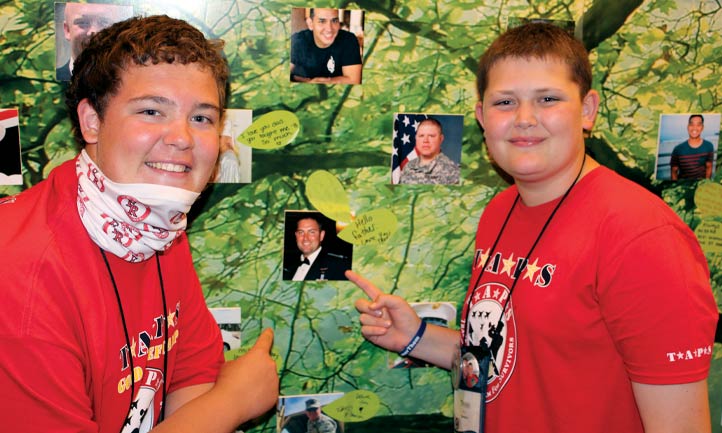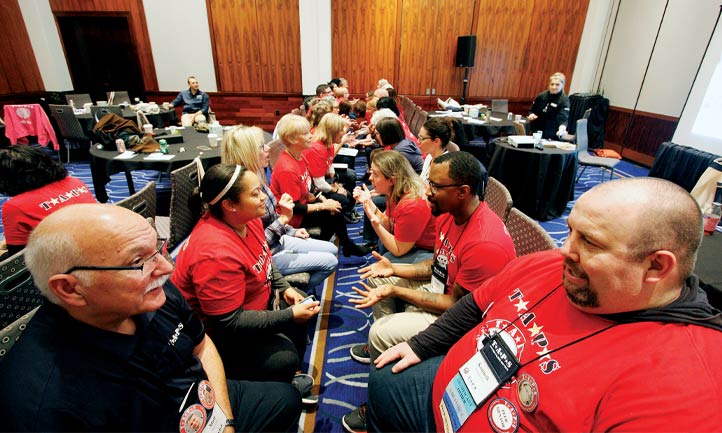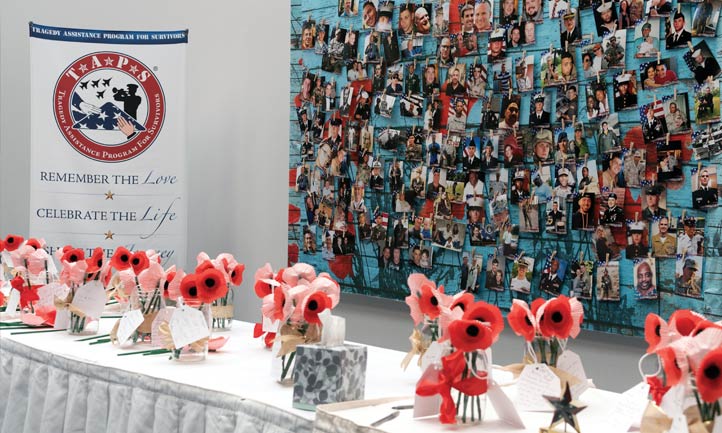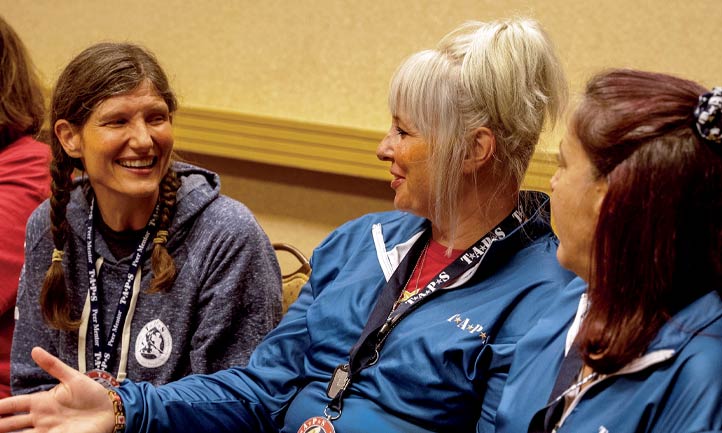Please Say Their Name: The Importance of Honoring and Remembering
Author: Pamela Gabbay
My father, Jerry Henry, was in the Army for my entire childhood. We lived all over the United States and in Germany. I really enjoyed being part of the larger military community. After he retired from the Army, he became a long-distance truck driver who drove an 18-wheeler. Late one night, he crashed his big rig on one of his many runs and died instantly. He was only 49 years old. When he died, the pain was unbearable. We didn’t have a chance to say goodbye or tell him that we loved him one last time. When my father died, I was 25 years old with a brand new three-week-old baby girl.
I was left reeling from the shock and pain of his death. I had never experienced anyone close to me dying up to that point. I remember trying to figure out how to be a new mom and also a grieving daughter. My father had only met my little baby girl two times, and he would never see her again. She would never know him. The sadness was immense and consuming. In my grief, I put away his photos. I stopped listening to country music, my dad’s favorite. I stopped doing anything that would remind me of him. I didn’t know anything about grief, and I thought doing this would help my sadness. What I realized later was that I was putting my grief on hold.
Three years after my dad died, I had my second child, a little baby boy. When my son was ten months old, my mom, Shirley Henry, was diagnosed with cancer. She died two weeks later at 51 years old. I was crushed. Once again, I was a grieving daughter trying to navigate the challenges of raising my young family while also figuring out how to live in a world without my parents. When my mom died, I handled my grief so differently and dove into it headlong. I talked about and shared memories of her. I put photos of my parents all around my home. I told my children stories about my mom and dad, their grandparents.

Through my grief, I was fortunate to have the support of family, good friends, and our military community. I vividly remember being able to tell stories about them and getting that much-needed support. Talking about my parents to people who understood my pain was extremely helpful.
What I didn’t know then, but I do know now, is that sharing our stories and remembering our loved ones is an important, crucial part of helping us to cope with our grief. Simply being able to say our loved ones’ names out loud, to talk about them so that their memory lives on, is a crucial part of honoring the lives they lived and how much they meant (and still mean) to us.
Why is this so important? Because people die, but our love for them never dies.
After a death, well-meaning friends and family often stop bringing up the person who died. They stop saying their name. They stop sharing memories. Why does this happen? It sometimes happens because people are worried that they will upset us if they bring up the person who died– they don’t want to remind us of them and make us sad. What they don’t know is that we are already thinking about them constantly. Bringing up our person or saying their name won’t cause us to “all of a sudden” start thinking about them. We’re already thinking about them. More often than not, saying their name or sharing a memory will be welcomed as they acknowledge that our loved one existed. We never, ever want them to be forgotten.
When someone sits with us in our grief or allows us to tell a story or share a memory, that can tremendously help our healing because we feel supported and less alone.
Family, friends, and society in general often don’t know how important this is or how crucial this support is. Sharing special stories and memories is heartening, especially as time goes on.

What are some things that you do to honor and remember your person or people who have died? Do you share their stories? Are there things you do once a year or on an ongoing basis? Perhaps you attend a memorial candle lighting or a walk in their honor, or maybe you volunteer and give back in memory of them. Perhaps you attend a TAPS event. Being able to grieve, honor, and remember in a community like TAPS is invaluable.
After my parents died, I turned to friends, family, and the grief world for help and support. I decided that if I could somehow get through my own pain, I would dedicate the rest of my life to helping others who were in pain. That was over 25 years ago. Every time I touch the life of someone grieving, I honor and remember my parents, Jerry and Shirley Henry. I am carrying their legacy forward. Thank you for allowing me to say their names and honor and remember them in this special way.
Dr. Pamela Gabbay, EdD, FT has spent the last 25 years working with bereaved families and overseeing organizations and programs in various leadership roles. She co-founded the Satori Group, which provides education and consultation to the end-of-life, death, and bereavement fields. Dr. Gabbay is also a national trainer for the American Foundation for Suicide Prevention and co-author of Understanding and Supporting Bereaved Children: A Practical Guide for Professionals, a book designed with practical and supportive ways to help grieving children and their families. Previously, she was the Director of the Mourning Star Center for Grieving Children, where she worked extensively with grieving children, teens, and their families. Dr. Gabbay was also an adjunct faculty member in the psychology department of Brandman University, the President of the Southern California Chapter of the Association for Death Education and Counseling, and the Vice President of the Board of Directors of the National Alliance for Grieving Children.


